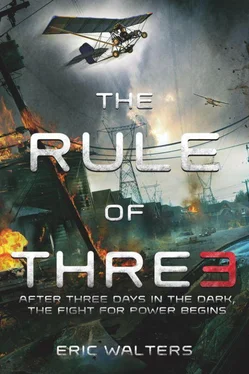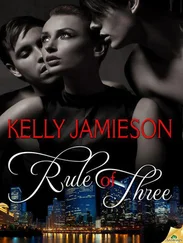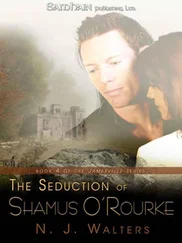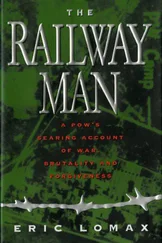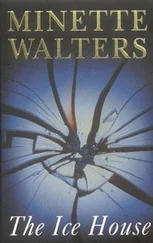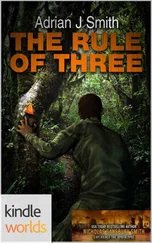I slid my finger down to our address. It listed my mother, myself, Rachel, and Danny. It didn’t list my father. My stomach did a flip. He wasn’t on the list because he wasn’t here. He was halfway across the country. I wished he was here to help out, to care for us. I just wished he was here. I’d heard enough to know that it was dangerous, that terrible things were happening and he was out there without us, without anybody. I didn’t even know if he was injured or— I stopped myself. I couldn’t think like that. I couldn’t let myself think like that.
Then I noticed that there was a faint mark in the margins beside our name. It was a letter “F” and it was made with pencil. I traced my finger down the list and found a second “F” and then a third. Did that mean family? We certainly were a family. But wait, there was another “F” and it was beside an address where there was only one person listed—he was an engineer, but he certainly wasn’t a family. Then there was Todd and his parents—no “F”—and they were definitely a family.
I went from page to page looking at those marked with that faint but distinct “F.” They were mainly families, because almost everybody in the neighborhood was a family, but not all—there were singles and seniors. It looked like an “F” was placed beside about ten percent of the houses or, really, the people.
I searched the list and my mind to try to figure out if there was anything that all of these people had in common. Maybe it was about the occupations of the people.
I scanned back through the pages. All of the police officers in the neighborhood had a mark. That must be it. Then I noticed that two of the doctors had a mark but two didn’t. Of the six nurses only three were given an “F.” There were two paramedics, the judge, two lawyers, some of the engineers, only a few teachers, two social workers, two pharmacists, and the vet. Every single person listed as a mechanic, contractor, or builder of some kind had the “F.”
Was that it? Did the “F” have to do with a set of skills that were valuable? Maybe Herb should have put a plus mark or a star or something else. “F” was like they’d failed, and certainly that couldn’t be the failure group. Those would be the people who had the most to offer if the technology didn’t return.
I looked more closely at the mark by my family’s names. There was a definite “F,” but it looked like there had been more letters there and that the rest of the word had been erased, rubbed off. It was the same way with each mark—one letter and the following letters gone. If I could read what had been written, maybe the mystery would be solved, but I couldn’t make it out in the limited light.
I lit a candle and then a second and a third. I was amazed how bright it was, and it took a few seconds for my eyes to adjust. I held the one page up close. It was obvious that something had been erased but I still couldn’t see what it had said. I flipped through the pages, thinking maybe one hadn’t been erased as well as the others. Page by page, I looked at each “F.” It was a short word, no more than four or five letters, and the second letter was definitely an “a.” It was like his eraser was being worn down as he went back through the list.
I flipped to the last page, went down to the bottom, found the last mark, and held it right up to the light. Tilting the page, I saw four letters, the last three mostly erased but still visible. It read “Farm.”
“Farm… Why would he write ‘Farm’?” I whispered to myself.
Then I realized why he was so interested in the Peterson farm, why he’d gone out there and asked so many questions, why he had acted so concerned. Safeguarding the people in this neighborhood was one step, but it wasn’t the next. That involved the farm. I just wasn’t sure how.
If sleep had been nearly impossible before, it had become completely impossible now. I had counted—there were 158 people with marks. That left over 1,400 without. Was Herb’s plan for us to leave the neighborhood behind and go out to the farm? But what about everybody else? Without my mother and the other officers, without Herb himself, this neighborhood would soon be no different from every other place out there. The people who were left behind would be in danger. No, not just danger. If what Herb was saying was true, then a lot of them would die. And what about Todd and his family, the little girls and their mother who lived down the street, the Kramers, who had retired and were pretty old?
No, I had to be thinking wrong. Herb couldn’t want us to just take off and leave them behind. He would have told my mother and me if that was his plan. Maybe he was going to tell us before the gunfire drew us away. He had started to tell us things. I couldn’t make assumptions. I had to ask him, straight out. When he came back with my mother, I’d ask him and he’d tell me. I wouldn’t settle for questions from him when what I needed were answers.
I startled awake. Somebody had come in the front door. The hair on the back of my neck stood straight up. I rolled off the couch and dropped to my knees. Reaching back, I grabbed my pistol from its holster under the pillow. It was probably my mother coming home, but I couldn’t assume anything.
I stood up and silently made my way to the kitchen door and slowly opened it.
It creaked slightly but let in light. I peeked out. My mom and Herb were sitting quietly at the table, having a cup of coffee. I ducked back to the couch and tucked away the gun, then went to join them in the kitchen.
“Good morning!” my mother said. She sounded deliberately cheerful. I’d lived around her long enough to know that tone was a disguise. “Did you sleep well?”
“Probably better than either of you.”
“And the kids?” my mother asked.
“Still zoned out, I guess.”
“The sleep of the innocent,” Herb said.
That sounded ominous. Not unrealistic, but ominous.
“How is Mr. Smith doing?” I asked.
“The doctor couldn’t save him.” Herb looked grim as he took a sip from his mug.
“He’s dead?”
“We just came from the house. I told his wife.” My mother’s voice quavered.
“You handled it well,” Herb said. “We should send over a social worker to talk to them. I should see who’s qualified to offer counseling.” He looked at me. “Do you have the survey papers?”
“I’ll go and get them.”
Maybe he thought I shouldn’t have taken them and worried that I’d looked at them. I didn’t care. I brought them back and handed them to Herb, who put them into his pocket.
“I’ve learned that there’s a real role for counseling in traumatic situations. Death affects so many more people than only the one who dies,” Herb said.
“Normally we have a whole team that meets with victims. I also think we should send somebody over to speak to Sergeant Evans,” my mother suggested. “Poor man. It’s hard to take a life, even if it’s justified.”
“It is. I know it’s very hard,” Herb said.
My mother and I both turned to him. I think we weren’t the only ones surprised by what he’d let slip out.
“Yes, I’ve been in that position,” he admitted. “The first time is the hardest, although it never gets easy.”
“How many times have you…” I started to ask, then hesitated. “I guess that’s not something you want to talk about. Sorry.”
“There’s nothing for you to be sorry about. I meant what I said to Sergeant Evans about doing what had to be done. I think that; I believe that. I need to believe that. So did you have a good look at the survey?”
“Yes, I did.”
“And what are your thoughts?”
Читать дальше
